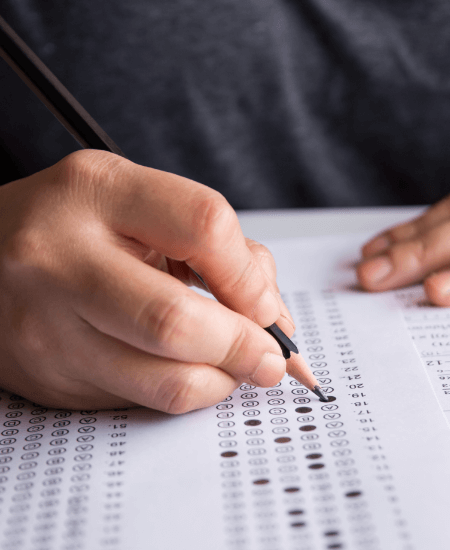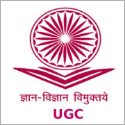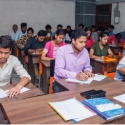Your Ultimate Guide To The UPSC Examination
UPSC is one of the toughest competitive exams in India. The exam is conducted in three stages- the prelims, main and the interview. The preparation can be a lengthy process and several candidates have unanswered queries. Get answers to all your UPSC queries here below.

Frequently Asked Questions (UPSC Examination)
1. What is UPSC examination?
The union public service commission is a central agency which is known for conducting the IAS examination. Civil services include 24 services and the examination will provide the platform to help be a part of these services. Around 5 lakh aspirants appear for this exam every year.
2. What is the age limit for UPSC exams?
The age limit for the UPSC exams can vary based on the caste reservations. However, the minimum age is the same for everyone attending the exams.
- Minimum age: 21 years
- Upper-limit for General: 32 years
- Upper-limit for OBC: 35 years
- Upper-limit for SC/ST: 37 years
3. How many times attempts permitted to write UPSC Civil Services Exam? (pre, main)
The number of attempts for a candidate will vary based on the caste reservations.
- General category candidates can write this examination up to 6 times
- OBC candidates are eligible to take up the UPSC examinations up to 9 attempts
- SC/ST candidates don't have a limit on the attempts. They are entitled to unlimited attempts till the age of 37.
4. What are the different stages of the UPSC examination?
The UPSC civil services exam is divided into 3 stages. These are 3 stages are the preliminary exam, main exam and the interview stage.
- Preliminary examination: Two objective type papers for 400 marks. This will act as the screening test
- Main examination: Will consist of 9 papers for 1750 marks with conventional essay type questions
- Personality test: The personality or interview test is the last final stage and will be for 275 marks
5. How many questions for Preliminary exams? How much duration for preliminary exams? Will there be negative marks or different marks for Preliminary Questions?
- The preliminary exams consist of 2 papers. The first paper focuses on General studies while the second paper is included towards testing the aptitude of a candidate.
- Each paper in the preliminary examination will be held for a duration of 2 hours which is 4 hours in total. It is mandatory for the candidate to attend both the exams to qualify to the next stage.
- Negative marking is a part of the UPSC preliminary exams. Wrong answers can have a critical impact on the final score as 1/3rd of mark for a question will be reduced. It's best to make educated guesses in preliminary exams.
- Paper 1 will consist of 100 objective questions while paper 2 will have 80 questions
6. What is the UPSC exam fees?
- The application fee for the UPSC exam is as follows:
- General and OBC – Rs.100/application
- SC/ST/PWD – No application fee
7. What are the types of services offered by UPSC?
The services offered by UPSC can be broadly categorized into Group A and Group B and are as follows:
Group A service
- Indian Administrative Services (IAS)
- Indian Police Services (IPS)
- Indian Foreign Services (IFS)
- Indian Revenue Services-Income Tax (IRS-IT)
- Indian Revenue Services - Central Board of Excise and Customs (IRS-CBEC)
- Indian Audit and Account Services (IAAS)
- Indian Information Services (IIS)
- Indian Civil Account Services (ICAS)
- Indian Corporate Law Services (ICLS)
- Indian Trade Services (ITS)
- Indian Defense Estate Services (IDES)
- Indian Defense Account Service (IDAS)
- Indian Ordinance Factories Service (IOFS)
- Indian Postal Services
- Indian Postal and Telecommunication Accounts and Finance Service
- Indian Railway Account Service (IRAS)
- Indian Railway Personnel Service (IRPS)
- Indian Railway Traffic Service (IRTS)
- Railway Protection Force (RPF)
Group B service
- Armed Forces Headquarters Civil Service (AFHQ)
- Delhi, Andaman and Nicobar Island Civil Service (DANICS)
- Delhi, Andaman and Nicobar Island Police Service (DANIPS)
- Pondicherry Civil Service
- Pondicherry Police Service
8. What is the educational qualification required for attending the UPSC exams?
UPSC has a set of pre-requisites for educational qualifications. All candidates who wish to take the USPC examination must have a degree from one of the following:
- The degree has to be from either a central, state, deemed university or Open University
- A degree from either distance or correspondence education.
- A qualification which is recognized by the government of India.
Note: All institutes must be incorporated by the act of central state legislature of India.
9. What is the structure of UPSC Civil Service exam?
The UPSC civil service examination is a 3 stage exam. These 3 stages are the preliminary stage, the main exam and the personality test.
Preliminary Exam:
This exam consists of 2 papers which consist of objective multiple choice questions.
- Paper 1 focuses on general studies and will have 100 questions with 2 marks for each.
- Paper 2 focuses on aptitude and will have 80 questions with 2.5 marks for each
Main Examination - 1750 marks
Candidates who successfully clear the preliminary exams will be eligible to attend the main exams. The main exams happen over a span of 5 days and will consist of 9 papers.
Papers in Qualifying mature
- Paper A – Compulsory Indian Language - 300 marks
- Paper B – English - 300 marks
Papers for merit
- Paper 1 – Essay
- Paper 2 – General Studies 1 - 250 marks
- Paper 3 – General Studies 2 - 250 marks
- Paper 4 – General Studies 3 - 250 marks
- Paper 5 – General Studies 4 - 250 marks
- Paper 6 – Optional Paper 1 - 250 marks
- Paper 7 – Optional Paper 2 - 250 marks
Personality Test - 275 marks
Candidates who successfully clear the UPSC mains will have to attend the personality test where the candidates will be asked questions on matters of general interest. This test is conducted to assess the candidate’s personality. The personality test is scored out of 275 marks.
10. Is necessary to join for coaching centers for preliminary and main exams?
It can be extremely beneficial to join a reliable coaching center for UPSC exams. Coaching centers will guide the candidate from the basics to advanced concepts and areas that are tested in the exam. Not only have that, coaching centers also provided necessary information associated with the exam pattern, how to register and the things to focus on. Coaching classes will also be tremendously helpful in the process of self-preparation.
11. How should a fresher begin UPSC exam preparation?
To start the preparation from scratch, there are a few important things to follow and are
- Understanding the requirements of the UPSC civil services exam
- Getting a list of material and books to use and refer to
- Research for the best IAS coaching centers and join the one that fits your needs
- Get familiar with the exam pattern and the different stages
- Get access to previous year question papers
- Make a habit of working on various mock tests
12. Where can I get previous year UPSC question papers?
One can find all previous year question papers at http://www.upsc.gov.in/examinations/questionpapers. There are many other websites which provide question papers and mock exam questions papers online
13. What are Optional Subjects for the Main Examination?
There is a wide range of optional subjects to choose from for the main examination and they are as follows:
General
- Agriculture
- Animal Husbandry and Veterinary Science
- Anthropology
- Botany
- Chemistry
- Civil Engineering
- Commerce and Accountancy
- Economics
- Electrical Engineering
- Geography
- Geology
- History
- Law
- Management
- Mathematics
- Mechanical Engineering
- Medical Science
- Philosophy
- Physics
- Political Science and International Relations
- Psychology
- Public Administration
- Sociology
- Statistics
- Zoology
Literature for regional languages:
- Assamese
- Bengali
- Bodo
- Dogri
- Gujarati
- Hindi
- Kannada
- Kashmiri
- Konkani
- Maithili
- Malayalam
- Manipuri
- Marathi
- Nepali
- Oriya
- Punjabi
- Sanskrit
- Santhali
- Sindhi
- Tamil
- Telugu
- Urdu
- English
14. What is the process to confirm if an application received at the commission's office?
There are two parts to a successful completion of an application. The first part involves filling up the details and getting a RID at the end of the process. After filling up all the necessary fields in the second part of the column, a successful submission message appears. RID from the first part and completion message from the second part indicates that the registration has been completed successfully.
15. What are the accepted modes of payment of the UPSC examination?
An application fee of Rs.100 must be paid when applying for the UPSC examination.
The accepted modes of payment are:
- Net Banking - SBI, State Bank of Jaipur and Bikaner, State Bank of Hyderabad, State Bank of Mysore, State Bank of Travancore and State Bank of Patiala
- Credit/Debit Card - Visa or MasterCard
- Cash Payment
Note: For cash payment, students should generate a pay in slip and pay the money before the deactivation date. SC/ST and physically handicapped candidates are exempted from the fees.
16. What are the preferred subjects that will benefit a candidate for the UPSC exam?
Choosing the subject is a matter of opinion and is completely dependent on factors such as interest, material availability, and success rate and coaching. However some popular subjects opted by candidates over years are history, sociology, philosophy, public administration, and psychology.
17. When can I expect the results to come out for the UPSC examinations?
- The result for the preliminary stage is usually out between the last week of July and early August
- The main examination results are generally expected either during December or early January The finals results are mostly out by March
18. Can a candidate write the UPSC civil service (Main) Examination in English and take the interview in Hindi or any other Indian language?
Yes, UPSC aspirants can write their examination in English and take their interview in Hindi or any other regional languages such as Telugu, Malayalam, Kannada, etc. To make this choice, the applicant must choose his/her preferred language of the interview while filling out the detailed application form for the examination. However, if a candidate has received an exception from the compulsory Indian Language paper, he/she would have to attempt the interview in either English or Hindi.
19. What is the age relaxation for handicapped students?
A general category aspirant can attempt for the UPSC exam until the age of 32. However, handicapped aspirants from the general category get a relaxation of 10 years over this making them eligible to apply until the age of 42. For OBC and SC/ST categories the age limit is 45 and 7 respectively. This includes people who are blind, deaf or mute and with orthopedic disabilities.
Servicemen who are disabled from duty are also eligible for age relaxation in appearing for the UPSC exam. Disabled servicemen in the general category can appear for it till 37 years, OBC to 38, and SC/ST till 40.
20. How to submit an online application for a UPSC examination?
The following steps should be followed when applying online for the UPSC examination:
- Website to visit: www.upsconline.nic.in
- Click on the online application for various exams conducted by the UPSC
- Scroll over the examinations menu and it will display links to part 1 and part 2 of the examination
- Complete the Part 1 registration first
- Once Part 1 is completed, head over to Part 2 to complete the entire registration
Note: Make sure that only a single application submitted. Candidates already a part of the government service or government-owned undertakings should submit their application to the commission.
We hope all your queries have been answered here. For an exam like UPSC, it's best advised to take the guidance of experts and you can find the best UPSC Training Centers here.












































Post a Comment